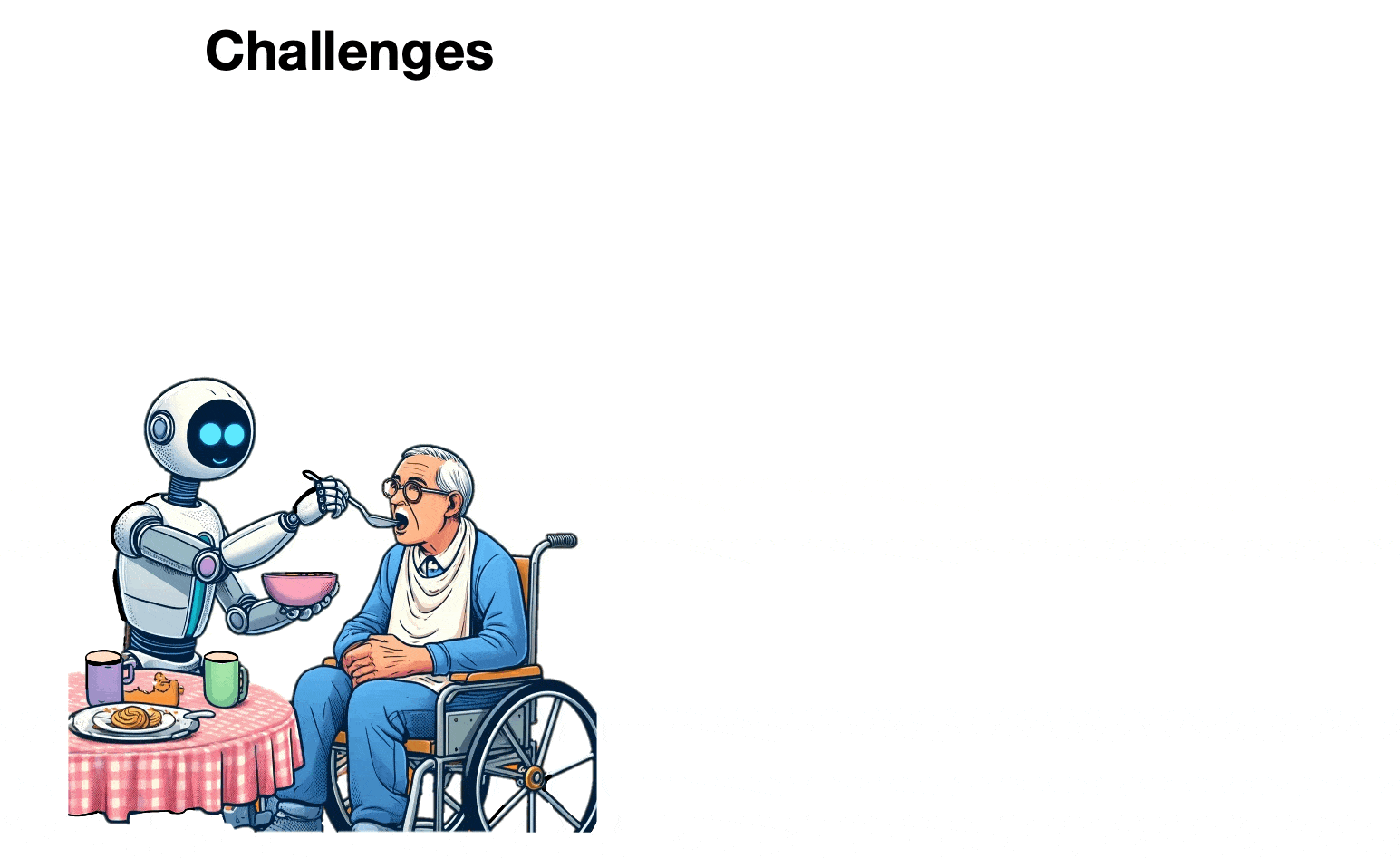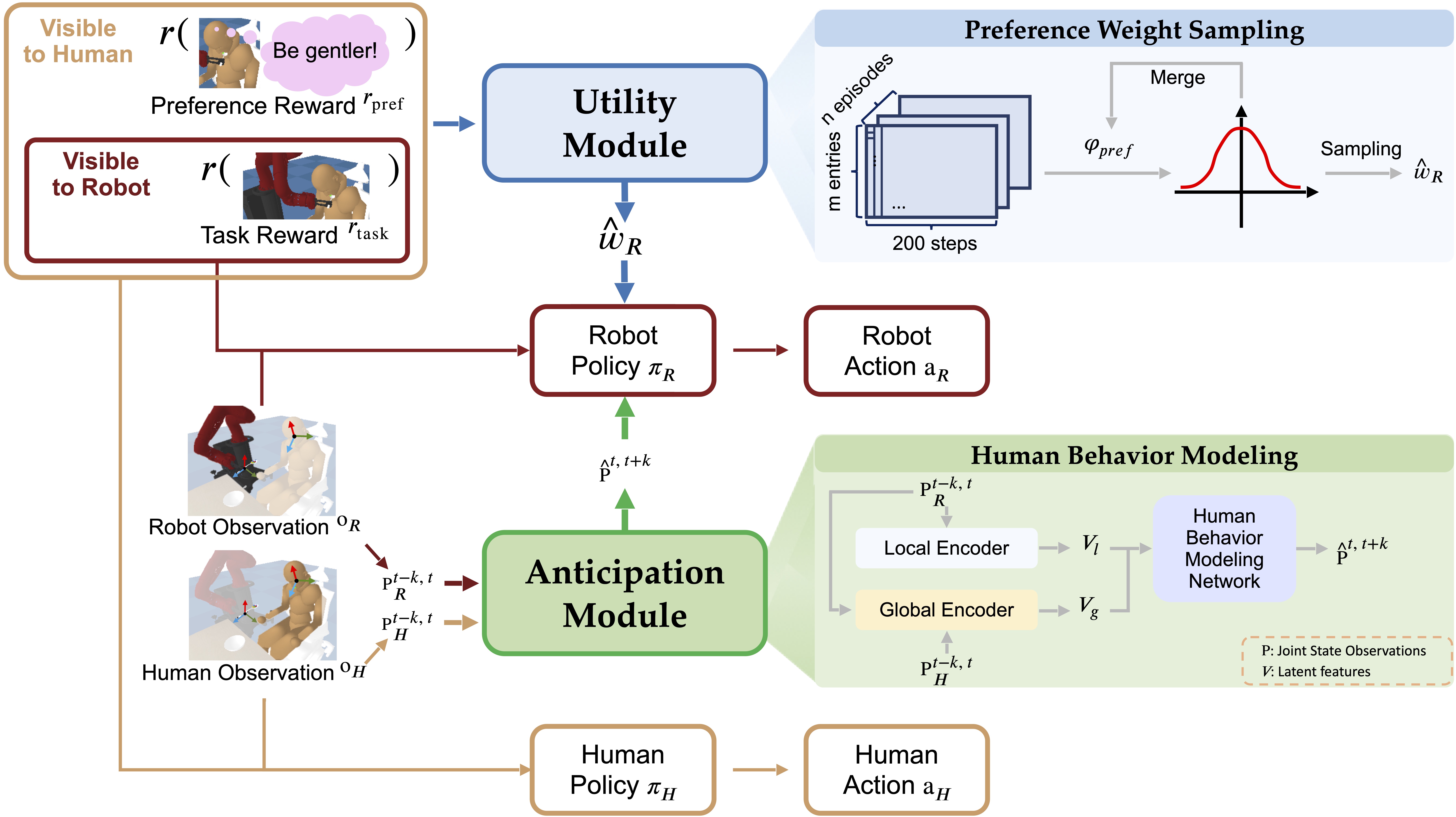This repository provides the official PyTorch implementation for the paper "Learning Human-aware Robot Policies for Adaptive Assistance".
This project focuses on developing adaptive robot assistance policies that are aware of human preferences and behaviors. It incorporates various modules to enhance robot interaction and assistance capabilities. The following sections will guide you through setting up the environment, training the model, and evaluating performance.
-
Visit Assistive Gym Subfolder to download folder
assets, then put it underassistive_gym/envs. -
Follow the instructions in the Assistive Gym README to install the Assistive Gym environment. Note: This repository contains modified versions of the original Assistive Gym, so please use our customized implementation for best results.
-
Install required dependencies by running the following command:
conda create --name <env> --file requirements.txt
To further modify the Assistive Gym environment, navigate to assistive_gym/envs.
To train the model, execute the following command:
sh train.shYou can adjust the following arguments based on your requirements:
- Environment:
--env FeedingSawyerHuman-v1 - Preference Setting:
--setting-name 1 - Anticipation Module:
--social(Enable or disable anticipation module) - Dynamic Future Mechanism:
--dynamic-future(Enable or disable future predictions) - Utility Module:
--dempref --continuous-sampling(Enable the utility module and continuous sampling) - Merging Parameter:
--merge-alpha 0.5 - Reinforcement Learning Algorithm:
--exp-name PPO(or other RL algorithms)
To evaluate the trained model, modify the train.sh script with the following arguments:
- Load Path:
--load-policy-path <path_to_checkpoint>(Path to your trained model) - Epoch:
--epoch <epoch_number>(Specify the epoch number for evaluation)
This will perform evaluation without further training.
If you find this work useful, please cite the following paper:
@misc{qin2024learninghumanawarerobotpolicies,
title={Learning Human-Aware Robot Policies for Adaptive Assistance},
author={Jason Qin and Shikun Ban and Wentao Zhu and Yizhou Wang and Dimitris Samaras},
year={2024},
eprint={2412.11913},
archivePrefix={arXiv},
primaryClass={cs.RO},
url={https://arxiv.org/abs/2412.11913},
}
- The base RL algorithms are built on top of Spinning Up.
- The anticipation module is based on Social-CH.
- The utility module is based on Dempref.
We thank the authors of these projects for releasing their source code.






